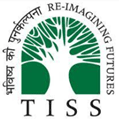Contact Information
-
location_on
V.N. Purav Marg, Deonar, Mumbai, Maharashtra 400088, India
-
call
(022) 25525000
-
mail_outline
(022) 25525050
-
email
- web_asset
Approved By: UGC
About Tata Institute of Social Sciences - TISS
The Tata Institute of Social Sciences (TISS) was established in 1936 as the Sir Dorabji Tata Graduate School of Social Work. In 1944, it was renamed as the Tata Institute of Social Sciences. The year 1964 was an important landmark in the history of the Institute, when it was declared Deemed to be a University under Section 3 of the University Grants Commission Act (UGC), 1956.
Since its inception, the Vision of the TISS has been to be an institution of excellence in higher education that continually responds to changing social realities through the development and application of knowledge, towards creating a people-centred, ecologically sustainable and just society that promotes and protects dignity, equality, social justice and human rights for all. The TISS works towards its vision through:
- Creation and provision of socially relevant and high quality professional education in a wide range of inter-disciplinary areas of Social Sciences, to a larger number of students, from all sections of society in the country.
- Facilitation of autonomous research and dissemination of knowledge.
- Support knowledge creation through strong M.Phil. and Ph.D. programmes and Post-Doctoral scholars.
- Strategic extension, field action and advocacy through training and capacity building of State and non-State institutions and personnel.
- Initiate field action and advocacy to demonstrate and facilitate creation of policies and programmes.
- Professional response to natural and human-made disasters, through participation in relief and rehabilitation activities.
Over the years, the Institute has made consistent contributions to civil society and the development sector through its education, research, field action and extension. Today, the TISS has earned recognition as an institution of repute from different Ministries of the Government of India; various State Governments; international agencies such as the United Nations; and the non-government sector, both national and international. A high degree of freedom and autonomy shape the positive work ethos and creativity in the Institute facilitating strong linkages between education, research, field action and dissemination.
Information compiled from: Tata Institute of Social Sciences - TISS Website

